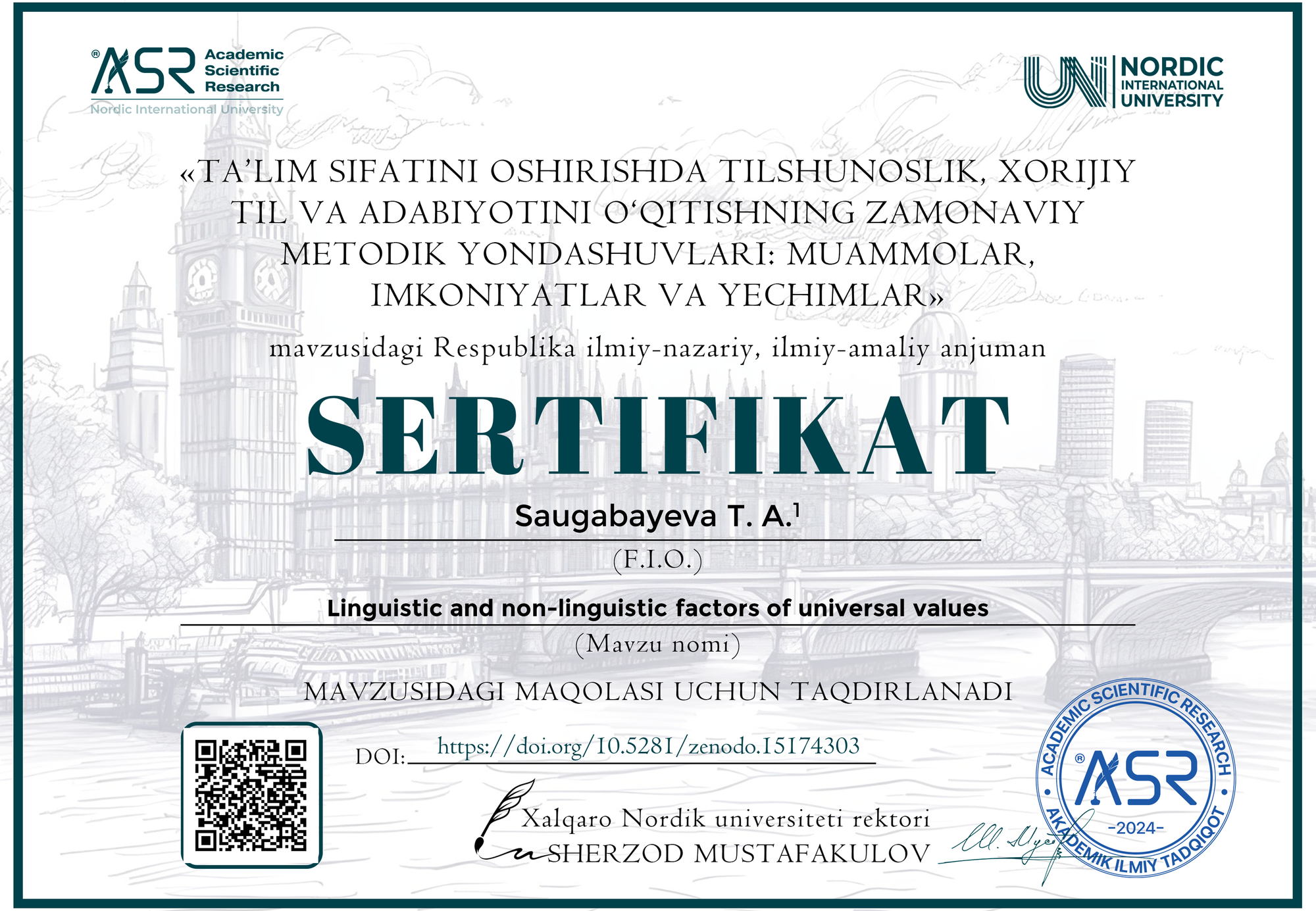Saugabayeva T. A. 1

DOI: https://doi.org/10.5281/zenodo.15174303
Google scholar: https://scholar.google.com/scholar?hl=ru&as_sdt=0%2C5&q=%22LINGUISTIC+AND+NON-LINGUISTIC+FACTORS+OF+UNIVERSAL+VALUES%22&btnG=
Zenodo community: https://zenodo.org/records/15174303
Nordic_press journal: https://research.nordicuniversity.org/index.php/nordic/article/view/2261
MAQOLANI YUKLAB OLISH
SERTIFIKATNI YUKLAB OLISH
REVIEW:
This article presents a detailed and well-structured linguistic analysis of the terminological system within the oil and gas industry, with particular focus on the Kazakh language. The author investigates the systemic and structural features of terminology formation, while also contextualizing the evolution of scientific vocabulary under socio-economic and technological development.
Strengths:
Depth of Theoretical Foundation:
The article is grounded in solid linguistic theory, drawing on foundational work from respected scholars such as O. Aitbayev, A. Baitursynuly, and international terminology research. The discussion around semantic fields, paradigmatic/syntagmatic relations, and entropy in linguistic systems provides depth and rigor.Focus on Kazakh Language Terminology:
The analysis of Kazakh oil and gas terms — such as “ұңғыма” (well) and its derivatives — gives the study regional and practical relevance. The article successfully shows how native linguistic resources and international borrowings co-exist and interact within the same terminological system.Systemic Linguistic Insight:
The author offers a systemic perspective of terminology, viewing terms not in isolation, but as parts of a larger semantic and structural network. This approach is valuable for researchers in terminology, applied linguistics, and lexicology.Multilingual and Multidisciplinary Approach:
The article reflects a rich comparative linguistic framework by discussing international terminological transfer, semantic compression, and morphological adaptation across Kazakh, Russian, and English.Areas for Improvement:
Structural Refinement:
While the content is strong, the article would benefit from clearer subheadings (e.g., Introduction, Theoretical Background, Analysis, Conclusion) to guide readers through the narrative flow.More Explicit Examples:
Tables or lists that directly compare terms across languages (Kazakh-English-Russian) would improve clarity and accessibility for readers.Language Polishing:
Although the text is largely readable, some sections could be improved stylistically for smoother academic presentation.Conclusion and Recommendation:
This article is a valuable contribution to the field of terminological studies, especially within specialized subfields like petroleum engineering and linguistic systematization. It demonstrates both theoretical and applied relevance, highlighting the dynamic nature of scientific vocabulary development in modern Kazakh.



